|
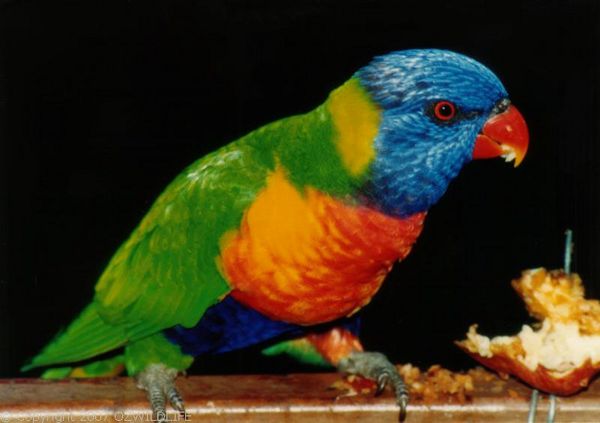
Rainbow Lorikeet feeding on apple. These are regular garden visitors feeding on fruit and native plants.
Image by ozwildlife - Some rights reserved.
|
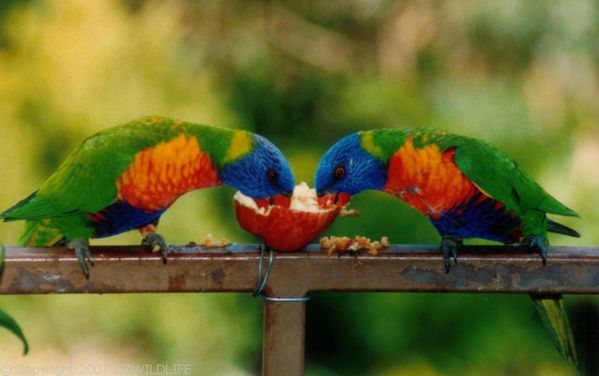
Rainbow Lorikeets feeding on fruit on deck of house in Brisbane.
Image by ozwildlife - Some rights reserved.
|
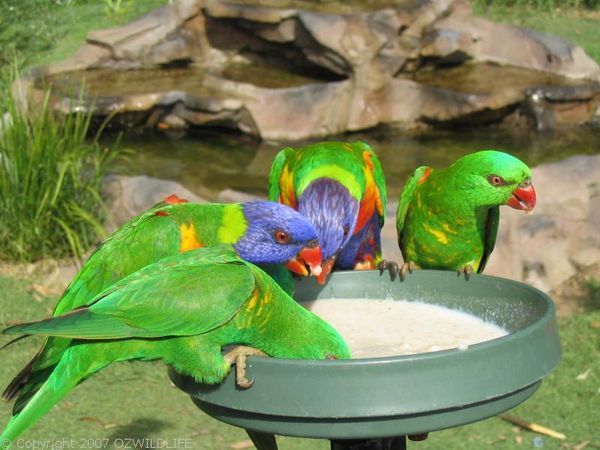
Rainbow Lorikeets and Scaly-breasted Lorikeets feeding together at Lone Pine Koala Sanctuary, Brisbane, Queensland.
Image by ozwildlife - Some rights reserved.
|
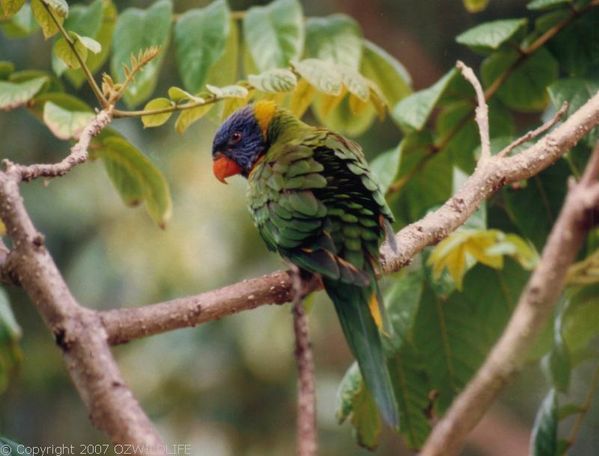
Rainbow Lorikeet at Currumbin Sanctuary. These wild birds come to feed at the sanctuary daily.
Image by ozwildlife - Some rights reserved.
|
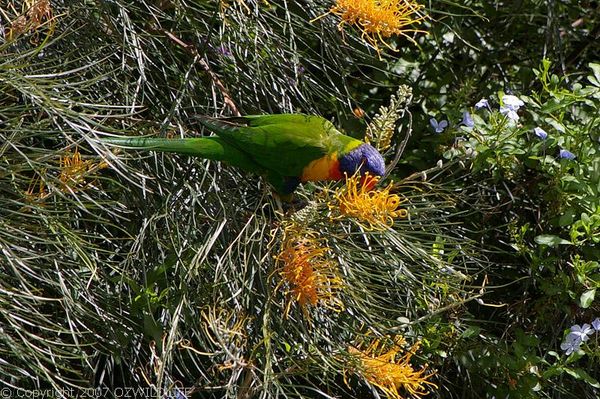
Feeding on Grevillea, Brisbane
Image by ozwildlife - Some rights reserved.
|
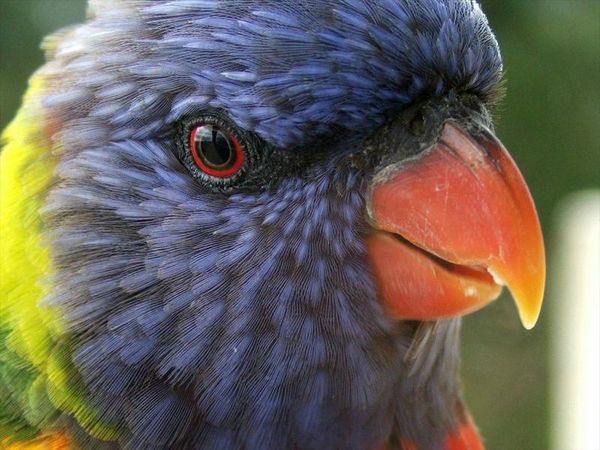
Rainbow Lorikeet
Photograph copyright: Nickolay Tilcheff - all rights reserved. Used with permission.
|
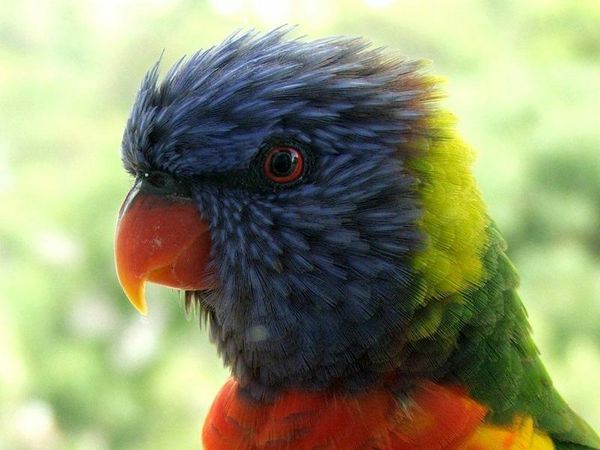
Rainbow Lorikeet
Photograph copyright: Nickolay Tilcheff - all rights reserved. Used with permission.
|
|
|
RAINBOW LORIKEET FACTS |
Description
The Rainbow Lorikeet is a brightly coloured parrot. Flies fast with rapid wing beats. Lorikeets are often seen in large flocks. Often these flocks are very noisy around sunset as they screech and fly around before roosting. They usually roost in tall eucalypts.
Other Names
Blue mountain lorikeet, Blue mountain parrot, Swainson's lorikeet, Rainbow lory
Size
28 cm
Habitat
rainforest, open forest, woodland, heath, mangroves, along watercourses, mallee, gardens, parks, orchards
Food
mainly flowers, nectar and fruit. The lorikeet has a brush on the end of its tongue to help with sipping up nectar and pollen. Native shrubs such as Grevilleas attract them to suburban gardens.
Breeding
Lays two or sometimes three white, oval-shaped eggs. May produce up to three broods of chicks in a single season. The male also spends time in the nesting hollow. The young leave the nesting hollow for the first time after 7-8 week, returning to roost for first few weeks.
Range
almost anywhere along the east coast of Australia from Cape York to Tasmania, both in towns and in the bush.

Credits:
Map is from Atlas of Living Australia website at https://biocache.ala.org.au licensed under Creative Commons Attribution 3.0 License.
Classification
| Class: | Aves | | Order: | Psittaciformes | | Family: | Psittacidae | | Genus: | Trichoglossus | | Species: | haematodus | | Common Name: | Rainbow Lorikeet |
Relatives in same Genus
Scaly-breasted Lorikeet (T. chlorolepidotus)
Red-collared Lorikeet (T. rubritorquis)
|
|

